Edith Thompson: CCRC told to revisit hanged woman's pardon case
- Published
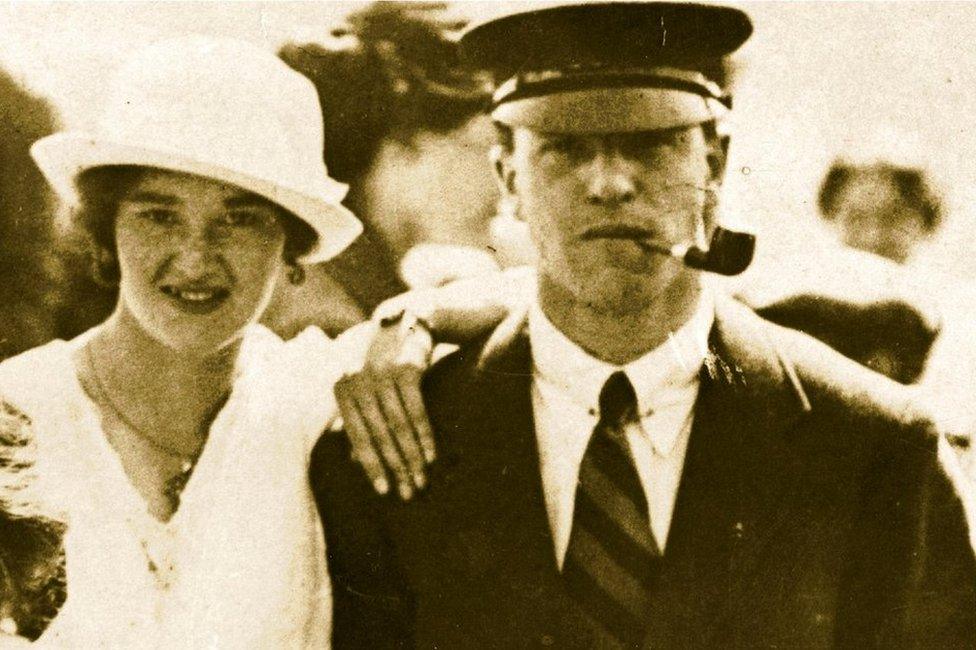
Edith and Percy Thompson were walking home from a night at the theatre when he was killed
A panel has been told to re-examine the case of a woman hanged for the murder of her husband, two months after it rejected a bid for her to be pardoned.
Edith Thompson, 29, was found guilty of murdering Percy Thompson after he was fatally stabbed by her lover Frederick Bywaters in east London in 1922.
The Criminal Cases Review Commission (CCRC) had ruled the case did not meet the requirements for a royal pardon.
It has been told to return to the case after legal proceedings were launched.
Edith and Percy Thompson, 32, were returning to their home in Ilford after a night at the theatre on 3 October 1922 when he was stabbed to death by her lover, 20-year-old Bywaters.
During their investigation, police discovered letters revealing an affair between Edith and her husband's killer. The murder became a huge public sensation.
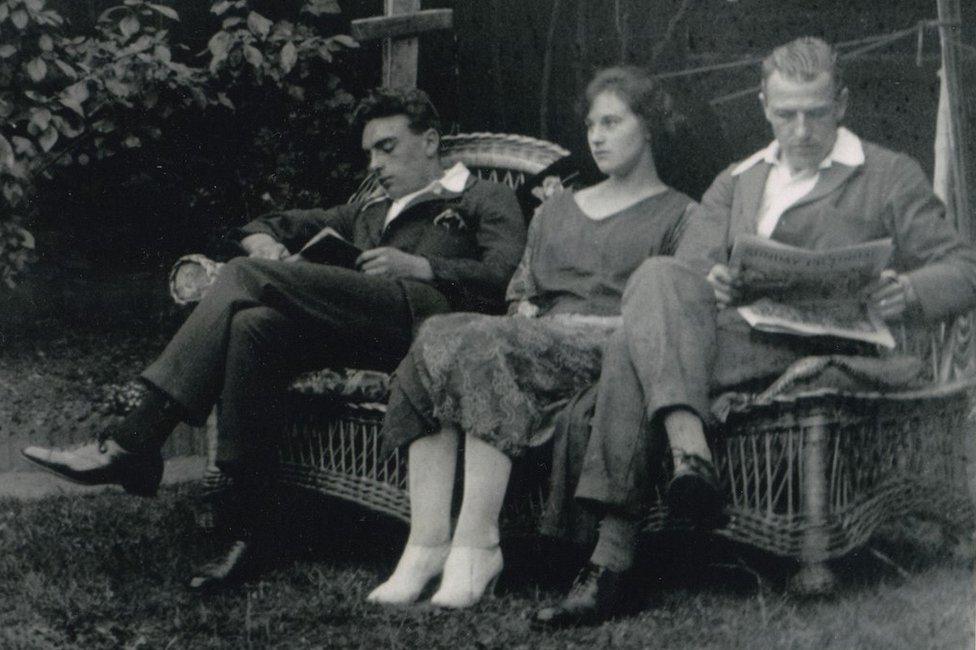
Freddy Bywaters (left), the lover of Edith Thompson, pictured with her and her husband Percy Thompson in the married couple's garden in east London
Despite there being little evidence against her, and the insistence of Bywaters that she played no part in her husband's death, both were found guilty of murder and executed at separate London prisons on 9 January 1923.
The case was referred to the CCRC by then-justice secretary Dominic Raab in 2023 following an application for a posthumous pardon by a firm of solicitors on behalf of Prof René Weis, Edith's heir and executor.
After a year, the panel found that while her trial may not now be considered fair, there was no new evidence available to meet the requirements for a pardon.
Earlier this month Prof Weis's solicitors started action for a judicial review over the decision against the CCRC and Justice Secretary Alex Chalk.
In their letter of claim, they said they were challenging the commission's decision "on the basis it is founded on an incorrect understanding and application of the law".
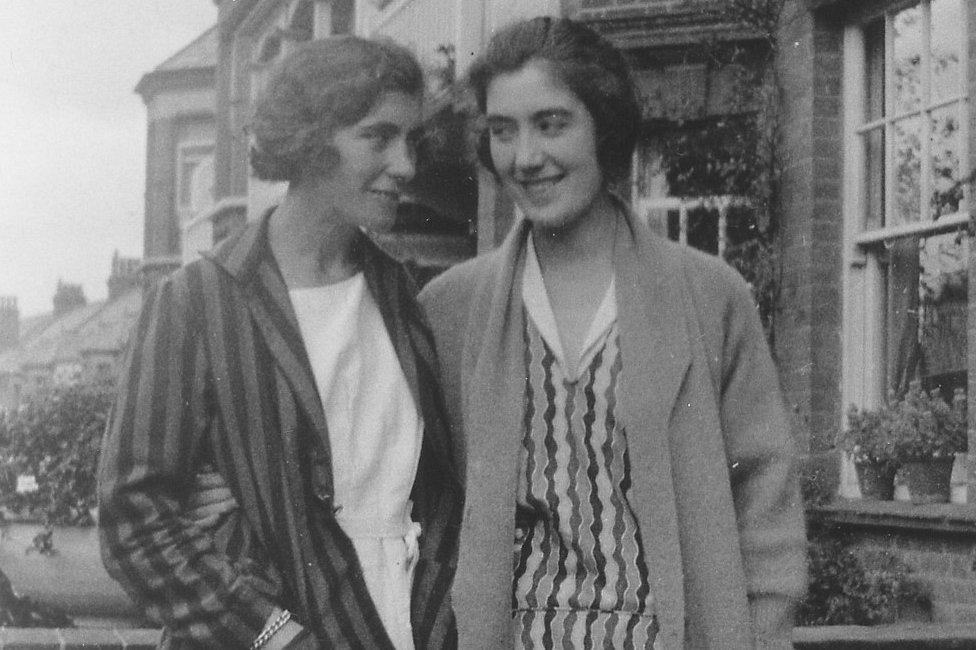
Avis Graydon (right) never got over the execution of her older sister
Among the arguments set out, they accused the CCRC of failing to address properly points such as the "biased summing-up of the trial judge", claimed new evidence had been provided and said the panel had failed "to recognise the wide scope" of pardons that had previously been issued.
In its response, seen by the BBC, the Ministry for Justice said Mr Chalk had instructed the CCRC to look at the case again, while also taking into consideration the arguments made in the challenge.
Reacting to the decision, Prof Weis said it "has to be a step in the right direction" as "it is a lasting stain on our justice system that Edith Thompson's innocence has not been officially acknowledged".
He added that her case had been one of the main reasons why the death penalty was abolished in the UK in the 1960s, having been brought up in debates about the issue at the time.
"That too is one of the reasons why she matters so much," he said.
A Ministry of Justice spokesperson said: "After careful consideration, the Lord Chancellor has referred this case to the Criminal Cases Review Commission to again investigate any potential miscarriage of justice."
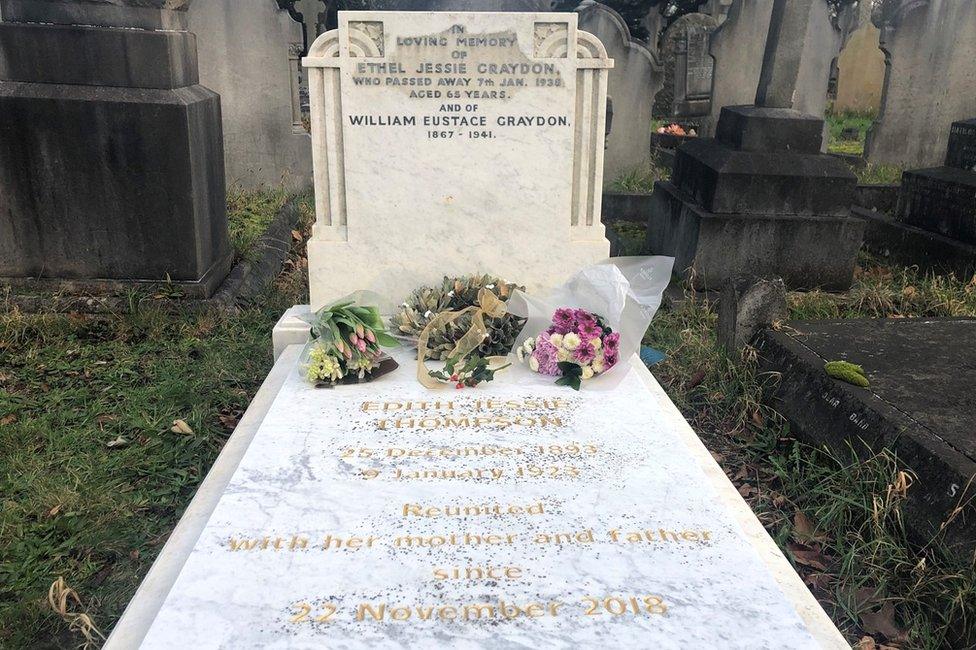
A service was held around Edith Thompson's grave in January, 101 years on from her execution

Find out more about the case on the BBC podcast Lady Killers with Lucy Worsley, which you can listen to on BBC Sounds

Listen to the best of BBC Radio London on Sounds and follow BBC London on Facebook, external, X, external and Instagram, external. Send your story ideas to hello.bbclondon@bbc.co.uk, external
- Published28 February 2024
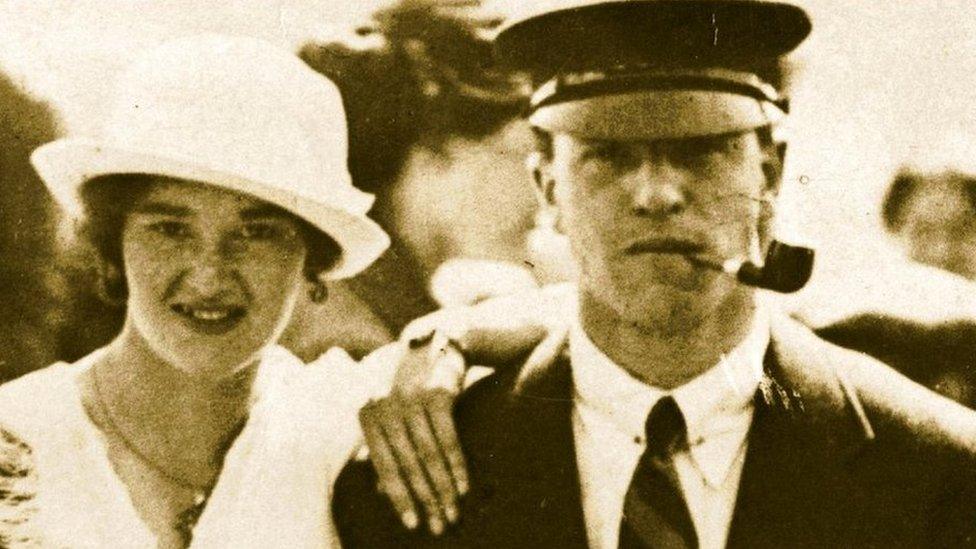
- Published7 March 2023
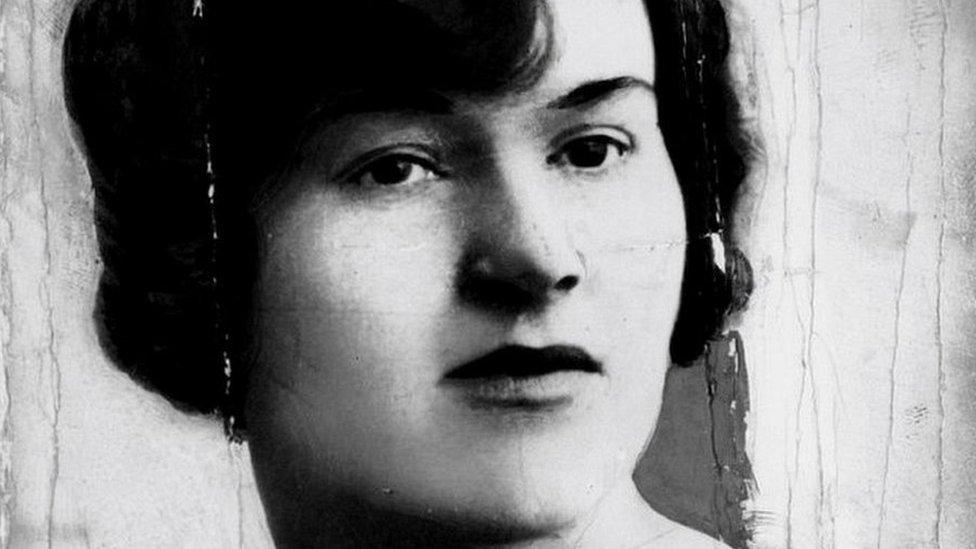
- Published10 January 2023

- Published9 January 2023
